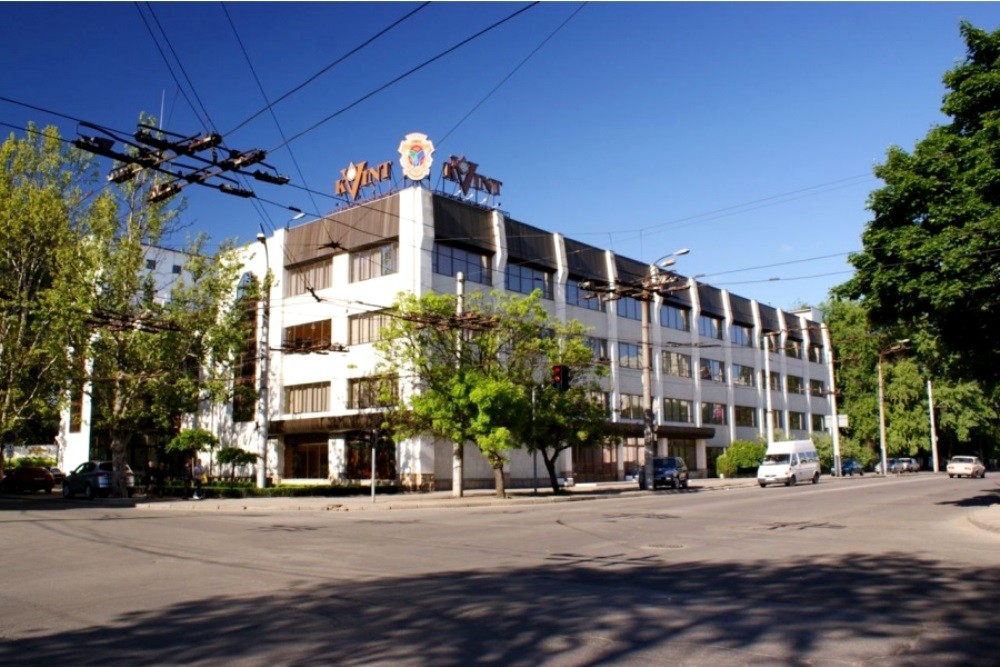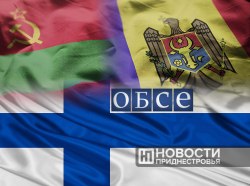Pridnestrovie has recently been facing an aggravating economic pressure on the part of Moldova and Ukraine. It is becoming a system. Thus, in a few days the decree of Ukraine's government which prohibits the transportation of excisable goods via the automobile and railway checkpoints «Kuchurgan» and «Platonovo» shall come into effect. These checkpoints are located right at the Pridnestrovian sector of Ukraine's border.
Kiev's decision will legally foster the practice of restrictions, which was established in September 2014 and which Pridnestrovie expected to be temporary. However, Ukraine has taken a different path and made import restrictions official. It means that they are likely to be pursued for a long time.
It is yet to estimate the exact amount of losses this decision will cause for Pridnestrovie's budget and domestic market. According to preliminary estimates, they will amount to USD 20 million in 2015.
Another repressive move made by Kishinev concerns Tiraspol's winery and distillery «KVINT», one of Pridnestrovie's top ten taxpayers. At the beginning of May, Moldova's licence chamber refused to prolong the factory's licences for alcohol production and import of raw materials. Its current licences will expire at the end of May, which will prevent «KVINT» from exporting its production.
This threat has been looming since last November when Kishinev prolonged the factory's licences for only half a year, saying some additional documents would be required in future. «KVINT» representatives raised this issue during the meeting between Pridnestrovie's Economic Development Ministry and exporters at the end of December 2014.
In brief, Moldova's extra requirements are as follows: to get a licence the factory must admit to its territory not only representatives of Moldova's state inspectorate for alcohol production and consumer protection agency, but also Moldova's tax inspectorate. Besides, the regulatory agencies want official status for their representatives in the territory of Pridnestrovie.
Evidently, Kishinev is waiting for Tiraspol to yield at last and open up its doors for Moldova's regulators. It will become a very important precedent and call into question Pridnestrovie's economic and political jurisdiction. If once Tiraspol yields, Moldova is certain to find ways of toughening bureaucratic procedures for other Pridnestrovie's leading enterprises as well. Moldova's agencies will demand access there; then they will bring up the subject of paying all taxes to the Moldovan budget, which will bury Pridnestrovie's economic independence.
***
Even if the «KVINT» issue receives some intermediate solution now, there are still several unfavourable trends as for Pridnestrovie's foreign economic activity. First, we see that since 2006 the Pridnestrovian economy has been very vulnerable to pressure from Moldova and Ukraine. Kiev and Kishinev have many opportunities for both unilateral and bilateral economic impact on Tiraspol. As a result, it is getting stronger — the discriminatory as it is conditions for foreign trade are aggravating, and the restrictions imposed by the neighbouring countries are more and more affecting not only Pridnestrovie's exports, but also imports.
It is still difficult to resist it — the mechanism which would guarantee Pridnestrovie's foreign trade and would become in this respect a follow-up to the Moscow Memorandum of 1997 is yet to be elaborated.
Second, close examination reveals that all the latest steps by Ukraine and Moldova are aimed at the step-by-step involvement of Pridnestrovie in the common economic space with Moldova. These include both excisable goods, which can be imported now only under licence or through the territory of Moldova, and licensing of «KVIINT» production. These measures continue the policy Kishinev and Kiev have been pursuing since 2006. If it is a question of the complete «reintegration» of Pridnestrovie into Moldova (as is stated today by Moldovan and Ukrainian leadership), this may well be followed by the new measures restricting Pridnestrovie's economic independence and, at the same time, forcing it into union with Moldova.
Third, the question arises as to what extent all these moves are related to the deep and comprehensive free trade area with the EU, which has already been established with Moldova and which will come into effect in 2016 in Ukraine. The relation is evident — not once did EU spokespersons say that it was necessary to work out a mechanism for the introduction of DACFTA principles in Pridnestrovie by the end of 2015. However, the DACFTA in its current state is unacceptable for Pridnestrovie, which is why restrictive measures may be applied to make Tiraspol yield.
On the whole, as before, there are two goals: pushing Pridnestrovie into Moldova «through economy» and establishing the integral European free trade zone which will absorb Pridnestrovie. However, those who want these goals to come true should contemplate a few questions. The expansion of de facto restrictive measures will result in increased poverty and affect the Moldovan and Ukrainian citizens residing in Pridnestrovie. Who will combat this artificially created poverty afterwards? New restrictions will lead to the decline of industrial (and not just industrial) enterprises. Who will help the republic back to economic health? Will Moldova and Ukraine benefit from the economic depression in Pridnestrovie? And this is far from the complete list of questions.
Pavel Uvarov








